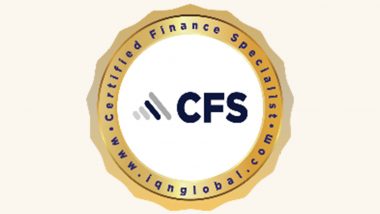Perhaps no other profession has more certification choices than the field of Finance and Accounting. The sector is ‘flooded’ with many designation choices for students and practitioners ….. making it difficult to select the right accounting and finance certifications.
In your own country, you may have local accountancy bodies that give you the statutory rights of external auditing, etc. On top of that you have the option to get certified through a number of global accountancy bodies. Renowned global names include American Institute of CPAs (AICPA), Chartered Institute of Management Accountants (CIMA), CPA Australia, Institute of Chartered Accountants in England and Wales (ICAEW) and Institute of Management Accountants (IMA).
However, if you are considering a career in internal audit, then your choice is perhaps certification from the Institute of Internal Auditors (IIA). If you don’t have specific knack for internal or external auditing role, you may have already considered certifications such as CFA (Chartered Financial Analyst) by CFA Institute, CFS (Certified Finance Specialist) by IQN and CFP (Certified Financial Planner) by CFP Board.
In comparison to CFA and CFP designations, CFS certification is relatively new. According to IQN website, it has certified about 10,000 candidates in different specialist roles including finance. However, no significant market data is available regarding how achieving CFS designation can contribute to salary increase or promotion.
Now let’s compare the content. CFA syllabus develops your skills and knowledge extensively for financial and investment analysis. In contrast, CFS syllabus brings a unique blend of financial management, financial accounting and management accounting. If you go through CFS Body of Knowledge, you would agree IQN has assimilated the finance elements with the accounting core. The benefits of such wider coverage are yet to be fullproof. Nonetheless, CFS designation after your name will certainly speak a volume about your financial competency.
While CFA certification require you to pass three rigorous levels and exams, CFS has only one exam. You become eligible to use CFS designation after your name right after passing this exam! The single exam will assess your knowledge of financial management and accounting. For exam preparation, you will have to study less than 500-page CFS Body of Knowledge.
To register for Level 1 CFA exam, you must have: a bachelor’s (or equivalent) degree or be a final-year student OR 48 months of professional work experience OR a combination of professional work experience and education totaling 48 months (without any overlap).
On the other hand, CFS certification exam has simpler entry requirement. You need to have minimum 1 year’s work experience. In addition, you must have either school-level certificate or university-level qualification.
To conclude, CFS certification will require you pass one exam, which is great for those prefer quicker alternatives. In addition, CFS may be helpful for candidates who are early in their careers or for mid-level managers since it has less content coverage. However, for in-depth international financial reporting skills, you may rather consider global accountancy bodies (such as, ACCA, AICPA, etc.). On the other, if you want to specialize in investment and related analysis, CFA certification could be your preference!
References:
- CFS – Certified Finance Specialist https://iqnglobal.com/
- CFA – Chartered Financial Analyst https://www.cfainstitute.org/













 Quickly
Quickly




















